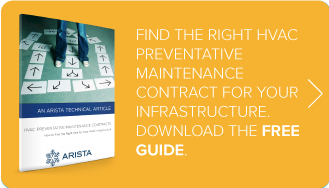If you’re not an expert on HVAC equipment, or even a handy sort of person, choosing a furnace maintenance provider for your company can seem like a daunting task. You’ve been trusted with this important assignment, yet you may feel like you’re in over your head.
Not to make you more nervous, but there’s a good reason to be concerned. If you choose a provider that’s unwilling or unable to do the job right, they may skip steps that can result in dangerous and even deadly consequences for you and your building’s occupants.
Why do furnace maintenance?
If you’ve done any research on the subject (or your boss actually took the time to explain why he’s dumped this job on you), you might be aware of some of the important reasons for having your furnace professionally cleaned and inspected every year:
- Cleaning the equipment makes it run more efficiently, resulting in a consistent and comfortable temperature throughout the building, and saving your company money on your utility bills.
- Getting rid of accumulated dust and debris keeps it out of the furnace where it can damage parts and cause them to wear out faster.
- Keep the dust out of the air ducts and the air you breathe prevents allergies, asthma attacks and illness in your building.
- Your technician can spot small impending issues with the equipment and fix them before the furnace breaks down, leaving you without heat and requiring an expensive repair job.
However, there’s another major health and safety concern that many are not aware of: carbon monoxide. If your furnace has developed a hole or crack in its heat exchanger, or if dust and debris are clogging the flue that expels the deadly gases that result from the combustion process, poisonous gas could be leaking into the air you breathe.
More than likely, your furnace is hidden away in a basement, tucked up in a crawl space or on the roof of your building, where it’s out of sight and out of mind. Cracks in the heat exchanger or a blocked flue won’t necessarily cause the furnace to stop working, so you won’t even know there’s a problem until your carbon monoxide detectors start going off. You do have carbon monoxide detectors throughout your building, right? Imagine the chaos that will ensue when you have to evaluate your building in the middle of a busy business day. And if you don’t have working detectors? The result can be life threatening.
Don’t think it can’t happen to you if you have a newer furnace. Cracks in heat exchangers can happen as a result of manufacturing defects and can happen at any time. Because of the way the newer, high-efficiency furnaces are built with primary and secondary heat exchangers, a crack is more likely to result in leaking carbon monoxide gas. And a blocked flue can happen to anyone at any time. We’ve seen cases where rodents or birds have built nests in exhaust vents over the summer causing blockages.
Choosing a qualified HVAC service provider can save your life
All furnace maintenance services are not created equal. You may have seen these services offered for a very low price, and there’s a reason for that. Those providers are not taking the time to properly inspect the heat exchanger. They’re just doing a quick cleaning and a cursory once-over. Properly inspecting your furnace and ventilation system requires more time and expertise.
In most furnaces, the heat exchanger is difficult to access in order to visually inspect it for cracks and holes. It’s often behind or underneath other components like a coil system or blower. Getting access to the heat exchanger often requires the technician to take apart the furnace. Depending on the design of your furnace, a reputable company may need to mirrors of even a small video camera to properly inspect the inside of the heat exchanger.
It’s also important that your technician knows what to look for. In some newer furnaces, heat exchangers are not completely sealed and are actually designed to have small openings. Someone who is not experienced may tell you that you need a new furnace!
How can you tell if you’re choosing someone who knows what they’re doing? Here’s what to look for:
- An HVAC company with MSCA or NATE certification.
- Competitive pricing, but be wary of a price that’s much lower than other providers.
- Longevity in the business. Disreputable providers often don’t last very long.
- Good references. Don’t hesitate to call them!
If want to make sure your company’s HVAC maintenance needs are regularly taken care of without taking your time away from other important tasks, it pays to sign up for a maintenance agreement. Sound too expensive? It can actually cost less than you think. Look for a provider that can tailor the contract to your requirements and your budget. To learn more about preventative maintenance contracts and how to find the right one for your needs, grab a copy of our free guide: HVAC Preventative Maintenance Contracts: How to Find the Right One for Your HVAC Infrastructure.

